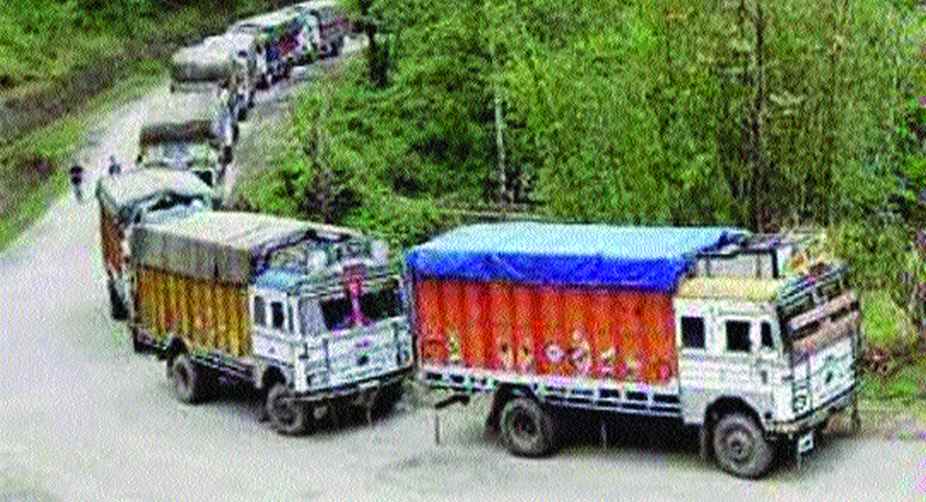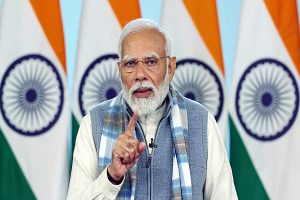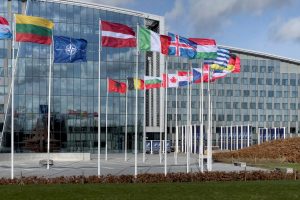Chief minister Okram Ibobi Singh has literally pulled the rug
from under the feet of the Manipur-based United Naga Council. UNC has imposed
an economic blockade of two national highways from 1 November as a mark of
protest over the proposal to create the Kuki-dominated Sadar Hills out of
Senapati district — a stronghold of the National Socialist Council of Nagaland
(Isak-Muivah) and the UNC.
On the night of 8 December, Singh, however, announced the
creation of seven new districts including Sadar Hills, which has been renamed
Kangpokpi district. The others were Kamjong in Ukhrul, Tengnoupal (Chandel),
Noney (Tamenglong), Pherzawl (Churachandpur) and Kakching in Thoubal Districts
and Jiribam from Imphal East. The names of the deputy commissioners and
superintendents of police of the new districts were also announced.
With this single master-stroke, Singh has been able to
silence the voices of dissent emanating from the Nagas of Ukhrul, Chandeland
and Tamenglong while also appeasing the Meiteis of Kakching and Jiribam. While
Jiribam had been vocal and active over the conversion of their area as a
district, not much was heard over the creation of Tengnoupal, Noney, Pherzawl
and Kamjong although occasional press notes have been making their appearance
once in a while. Now the UNC finds itself in a catch-22 situation with its
president Gaidon Kamei and information secretary S K Stephen already in custody
after being arrested by Tadubi police on a separate set of charges relating to
crimes committed during the ongoing economic blockade.
The Manipur High Court had earlier come down heavily on the
state government for not doing enough to break the blockade and decreed that
adequate security forces be used to enable the passage of hundreds of
goods-laden trucks stranded at the Nagaland-Manipur border and at Jiribam on
the Assam border.
Singh rose to the occasion and first directed the district
magistrate of Senapati district to impose prohibitory orders and a curfew along
NH 39. Then he mobilised all the forces at his disposal and sent them to Mao,
equipped with two excavators to remove obstacles and two ambulance vans with
doctors, paramedic staff and medicines. Earlier, the chief minister had written
to Union home minister, Rajnath Singh stating that the UNC is the frontal
organisation of the NSCN (I-M) that is holding talks with the Centre, and therefore
it should intervene and give necessary directives to call off the blockade. The
Centre’s response was ambiguous.
But for the Nagas, the blockade has been an annual feature
and this apparently is the season. This time Singh had initially avoided confronting
the Nagas along NH 39, choosing the Imphal-Jiribam via Silchar route instead.
But the UNC activists had taken excavators and dug up the road to prevent that
but Singh sent yet another team to Jiribam and escorted several trucks to
Imphal.
When asked, UNC chief Kamei told the media that he would
consult his people first before taking a decision on whether or not to call off
the blockade. He was also served with a 72-hour deadline by the United
Committee Manipur, the other apex body, comprising mostly Meiteis of the
valley. The All Manipur Christian Organisation also requested the UNC to call
off the blockade keeping in mind the fact that people were suffering and
Christmas festivities were round the corner. The Nagas have often used the
national highways that pass through their areas to highlight their demands and
grievances, thereby causing a scarcity of essential items in the Imphal valley.
In the meantime queues for petrol and before ATMs are lengthening, although
prices of essential goods have come down in the grey market with petrol now
selling at Rs 150 a litre.
Singh’s master-stroke may ensure the re-election of Congress
legislators in the assembly elections due early next year. If the NSCN (I-M)
opposes the bifurcation of Chandel and Tamenglong districts, they are bound to
lose the support of the people there, and if they welcome it, they would be
praising their sworn enemy, Singh. Silence would be golden for both the NSCN
(I-M) and the UNC at the moment. For Singh, it was perfect timing — he must
have waited for people to feel the brunt of the blockade first and then offer a
panacea, both in terms of a show of strength and political decisiveness.
In this scenario, the valley population has all but
forgotten the burning issue of the Inner Line Permit system that had paralysed
the state administration for months. And agitators in Churachandpur are also
quiet for the time being with nine bodies still lying in the morgue — they were
killed in last year’s clashes over three bills the state assembly had passed.
And so, for Singh and company, the blockade and Narendra Modi’s demonetisation
have come as godsends.
On the other hand, the Joint Naga Civil Societies in Delhi
issued an ultimatum to the state government to roll back the creation of the
new districts by stating that Tengnoupal will become another Kuki district and
that the Meiteis will start encroaching upon Kamjong. In a near xenophobic
stand, the Delhi Nagas asked the Centre to impose President’s Rule in Manipur
and roll back the decision.
The NSCN (I-M) has also retracted from Hebron stating that
the move to create the new districts will jeopardise the ongoing peace talks
with the Government of India, which is now in its 19th year. In a press
statement issued on 12 December, the NSCN (I-M) has questioned the sincerity of
the Centre by saying that it is in cahoots with the Government of Manipur. It
also said that it stood by the UNC on the indefinite economic blockade. It took
a pot-shot at Singh by saying said that they have taken a serious note of his
attempts to communalise the vote banks of the Nagas on one side, and Meiteis
and Kukis on the other. And, finally, it said that the seven new districts are
not acceptable to the Naga people. All of Singh’s decisions run in opposition
to their ethnic cleansing pogrom, which the NSCN (I-M) had initiated around
1992 — it killed more than 1,000 Kukis in an attempt to clear grounds for a
greater Nagalim.
The Union home minister said in a statement that “the Centre
was fully committed to the maintenance of law and order and that it considers
blockades anywhere in India as a gross violation of law and a crime against
humanity”. That said, the BJP’s central leadership has almost dug its own grave
in the forthcoming polls in Manipur. This happened when Union human resource
development minister Prakash Jadavekar, who is in charge of the forthcoming
elections, told a public meeting on 11 December that with the creation of seven
new districts, the state government is following a divide-and-rule policy. This
is exactly what the UNC/NSCN (I-M) and other Naga groups have been saying and
Jadavekar suddenly appeared as their main spokesman from New Delhi. This has
not been taken too kindly by the valley people and that will be reflected in
the polls next year.
The writer is the Imphal-based special correspondent of The Statesman












